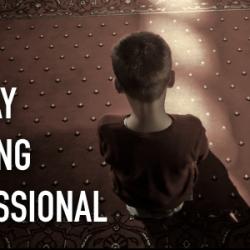 I’m finding it harder and harder to read the news these days. Mostly I cycle through the sites I used to care about, glancing at headlines and thinking to myself how inane and ridiculous it has become. There’s an interesting article in The New York Times on the topic. It’s written by Ravi Somaiya, and it manages to be self-critical, even as the NYT is one of the few national publications left that actually tries to hold to some semblance of dignity. The article is called, “Where Clicks Reign, Audience is King,”and it’s worth reading.
I’m finding it harder and harder to read the news these days. Mostly I cycle through the sites I used to care about, glancing at headlines and thinking to myself how inane and ridiculous it has become. There’s an interesting article in The New York Times on the topic. It’s written by Ravi Somaiya, and it manages to be self-critical, even as the NYT is one of the few national publications left that actually tries to hold to some semblance of dignity. The article is called, “Where Clicks Reign, Audience is King,”and it’s worth reading.
Here’s a short excerpt:
Most within the industry prefer to talk about the top third of the iceberg: the substantive, original work that both old and new media pursue. And most agree, at least, that news organizations must now aim to reach the widest possible audience. Even outlets, like The New York Times, with robust online subscription bases must increase their audiences on the web and try to convert more to paying readers. For newspapers and magazines, which must make up for increasing losses in print advertising and circulation, the need is even more urgent.
That, Mr. Topolsky said, means that the news industry must churn out stories that are the equivalent of blockbuster superhero franchises, with mass-audience appeal, but light on nuance and creative risk.
“I think that we have, in trying to attack the totality of possible eyeballs on the Internet, lost the things that make publications great,” he said.
The shift is, perhaps inevitably, rooted in money… every publication now requires a greater number of readers to make ends meet. And perhaps the greatest potential resource are the billions who have turned to social media as a faster portal for information. That means journalists must now compete with entertainment, quizzes, gossip and baby pictures. The weapon of choice is often emotion. Specialists optimize and test multiple headlines and pictures. If they land on a successful formula — asking a provocative question, hinting at a profound experience, including a celebrity name — it is quickly echoed by other outlets.
It is hard to separate human behavior from the behavior of the algorithms that drive Facebook and Google, said Jon Kleinberg, a computer scientist at Cornell University who has done research on social and information networks. But some research has suggested that the web might just be recording existing aspects of human behavior. Undigested comments that people might have made to colleagues or friends but later thought better of are now written down as journalism, and “get indexed and archived in the same way as a serious news story.” It is a phenomenon that is seen across the web, Mr. Kleinberg said.
All of this to say that I sometimes wonder if the actual printed on paper newspaper might be the only thing that stands between us and oblivion.













